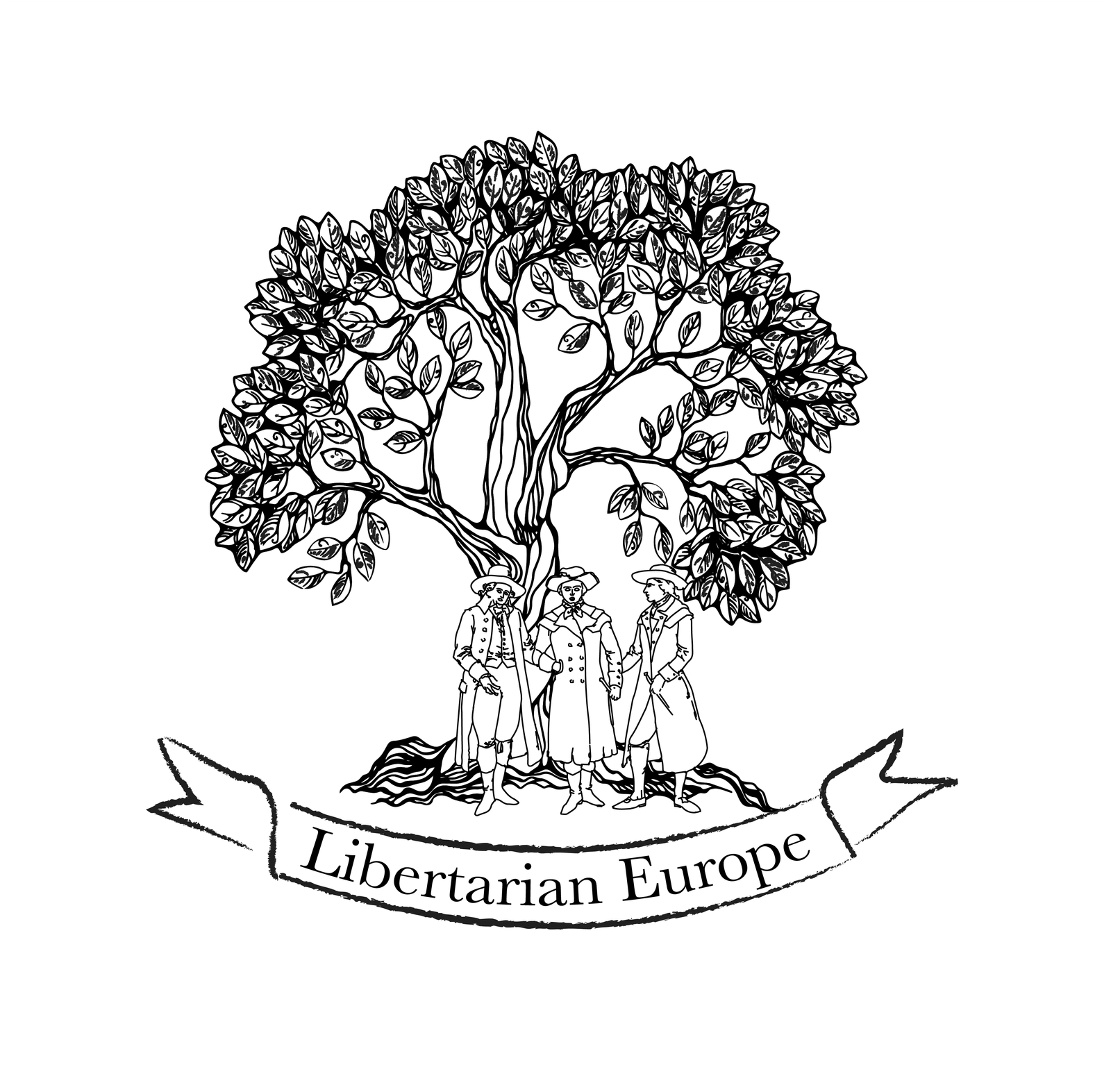
Beyond Libertarianism: Cultivating a Cultural Repertoire
If you delve into the works of the great Austro-Libertarian authors like Ludwig von Mises, Hans-Hermann Hoppe, and Murray Rothbard, and carefully examine their annotations, you will discover that their writings are rich with intriguing sources that extend beyond economics and the libertarian framework of social theory. These incredible men were erudite scholars.
These thinkers were highly well-read and their influences extended beyond just economic thought. Their revolutionary impact and production only exist because they have cultivated a broad cultural repertoire by reading enormous amounts of literature, understanding historical facts and contexts, human behaviour, and especially by grasping the perspectives and theories of their ideological and philosophical adversaries.
Unfortunately, many libertarians often lack the extensive cultural background that distinguished the great thinkers mentioned earlier, leading them to ignore several aspects of problems that the Libertarian theory tries to solve, ultimately driving them towards unsatisfactory conclusions.
It is not necessary to possess the same level of knowledge as these brilliant authors, they have probably read much more than we did so far in our lives; however, it is essential to uphold their tradition of fostering a broad cultural repertoire.
The Austro-Libertarian theory should not be consumed alone without other areas of knowledge, as it is not some sort of absolute gospel that has all of the answers in its writings. We cannot forget and ignore the fact that the Libertarian theory is derived from several different disciplines and thinkers.
The founding fathers of the Austrian School of Economics and of the Libertarian Social Theory would have never committed such an act of ignoring other disciplines and lines of thought. To maintain their ‘holistic’ heritage we must expand our horizons.
An anthropocentric thinking
Austro-libertarianism is centred on human beings and their behaviour by recognising the primacy of individual agency, subjective value, and spontaneous order in social and economic interactions.
Having the man at its centre is rooted in the idea of praxeology (the study of human action), developed by Ludwig von Mises, which provides a framework for understanding human behavior and economic phenomena based on deductive reasoning from basic principles about purposeful action. It offers insights into how individuals make choices, interact in markets, and contribute to the broader social and economic order.
Thus, having multidisciplinary knowledge is crucial for practicing libertarianism. Understanding the human psyche, culture, religion, biology, history and context has always been a strong characteristic to the development of the Libertarian theory.
We must cease seeing human beings as commodities, a mistake commonly promoted by egalitarians who ignore characteristics that differentiate us, failing to distinguish the complexity of men and women who carry ideas, values, and backgrounds. People are not commodities like iron, aluminium, or crude oil. Individuals have different characteristics that shape them and their behaviour, giving them much more depth that can never be fully evaluated through a simplistic egalitarian view—that is not part of the Austro-Libertarian tradition.
To go beyond the shallow egalitarian perspective that has been normalised in the present era, following the rich heritage of the Austrian School and Libertarian thinkers, we must break through the boundaries of ignorance and enlighten our minds with diverse domains.
We must study fields such as history, theology, anthropology, culture, psychology and various other disciplines that influence humanity to gain a broader and more accurate understanding of how individuals are, why they think and act the way they do, and how their beliefs and behaviours are shaped by different contexts. By integrating knowledge from these diverse areas, we can develop a more comprehensive perspective on human nature, societal dynamics, and the underlying factors that drive human actions and interactions. This holistic approach will enable us to appreciate the complexity and richness of the human experience, fostering more informed decision-making.
It is crucial to read about the important events that shaped the world around us, to understand where the ideas that influence most people around us come from. It is important to comprehend the beliefs and values of the religions that shape the moral values of those around us.
Understanding Greco-Roman philosophy and history, Christianity, Islam, Judaism, atheism, Islamic Expansionism, Al Andalus, the Mongolian Empire, the Middle Ages, the crusades, the French Revolution (including its causes, consequences, and key ideas), the Enlightenment, German Idealism, the American Revolution, the Spanish Civil War, the Soviet Revolution, and numerous other pivotal events is crucial for grasping the forces that have shaped Western Civilisation and the world around you.
Scouting the enemy territory
Just as vital as acquiring knowledge from diverse fields is the importance to study authors whose ideas are diametrically opposed to Austro-Libertarianism, regardless of how seemingly absurd they may appear. As the great Chinese military general and strategist Sun Tzu said in his book The Art of War:
If you know the enemy and know yourself, you need not fear the result of a hundred battles. If you know yourself but not the enemy, for every victory gained you will also suffer a defeat. If you know neither the enemy nor yourself, you will succumb in every battle.
Sun Tzu emphasises the importance of understanding both your adversary and your own strengths and weaknesses in achieving success in conflict or competition. If we ignore our adversaries’ strategies, strengths and weaknesses, how can we fight them and expect to win a cultural war in which every battle is crucial, as our numbers are much smaller than theirs?
Many libertarians (some of them leaders of Libertarian movements in their respective countries), unfortunately, refuse to study authors such as Marx, Gramsci, Horkheimer, Adorno, Foucault, Derrida, Walter Benjamin, Habermas, Lukács, Charles Fourier, Judith Butler, Richard Delgado, Kimberlé Crenshaw, and other socialists, cultural Marxists, and post-modernists. They often believe that since left-wing thought has been refuted by Mises and other Austrian scholars, it is unnecessary to engage with these thinkers.
However, ignoring these authors is a mistake, a mistake that has never been committed by the founders of the Austro-Libertarian theory, as they have always studied these socialist and communist authors to be able to refute their arguments.
Despite their flawed leftist theories and undesirable goals, these left-wing theorists have been remarkably successful in disseminating their ideas. Understanding their strategies is crucial for effectively countering their influence, and employing some of their tactics against them could also be an effective approach as it is important to admit that these thinkers were extremely capable in terms of strategies.
Beyond official narratives
Critical thinking is paramount within the Austro-Libertarian tradition, as libertarians actively pursue the truth. Our commitment to uncovering the truth is grounded in the rationality that forms a fundamental aspect of our thought process and we must be aware that narratives can frequently be biased, incomplete, or outright false.
Characters like Rothbard often advocated for a rigorous, detective-like approach to historical research, which involves critical examination of primary sources, questioning established interpretations, and being willing to go against mainstream academic and public opinions when the evidence supports a different conclusion.
Truth is not always evident and many times, it is well hidden behind a smokescreen created by agents that benefit from these lies. Many entities and individuals have vested interests in perpetuating falsehoods or manipulating narratives to suit their agendas. Therefore, to cultivate a comprehensive and informed worldview, we must adopt a rigorous approach to information. This involves questioning established narratives, scrutinising sources with discernment, and critically evaluating the evidence presented. By honing our critical thinking skills and delving deep into the complexities of issues, we empower ourselves to uncover underlying truths and contribute meaningfully to discussions on liberty, justice, and societal progress.
Often, the truth lies beyond mainstream sources. An example of this is our own Austrian School of Economics, which is not recognised as a mainstream economic approach. Given that mainstream economics after Keynes is often flawed, misleading, and serves the vested interests of politicians and corporatists, the Austrian School offers an antihallucinogenic remedy that dispels the illusions of contemporary mainstream economics.
If you are a well-read Libertarian, you may have noticed that Rothbard often engaged with historical revisionism, applying his revisionist approach to various historical periods and events. For instance, he critically analysed American history, including the causes and consequences of wars, economic policies, and political movements. This meticulous work method of Rothbard is well described by Hans-Hermann Hoppe:
But above all it was Murray, who taught never to trust official history, invariably written by the victors, but to conduct all historical research instead like a detective investigating a crime. Always, first and foremost and as a first approximation, follow the money in search of a motive. Who is to gain, whether in terms of money, real estate or sheer power from this measure or that? In most cases, answering this question will lead you directly to the very actor or group of actors responsible for the measure or policy under consideration. Simple as it is to ask this question, however, it is much more difficult and requires often arduous research to answer it, and to unearth, from under a huge smokescreen of seemingly high-minded rhetoric and pious propaganda, the hard facts and indicators — the money flows and welfare-gains — to actually prove a crime and to identify and ‘out’ its perpetrators.
It certainly takes time and dedication to follow in the footsteps of figures such as Mises, Hoppe, and Rothbard. They have always been meticulous and rigorous thinkers, but this level of commitment is essential for uncovering the truth and understanding the world around us. Possessing this deep knowledge is crucial for making informed decisions and achieving your goals in an increasingly chaotic world.
Hopefully, this article will inspire you to go above and beyond, expanding your horizons and broadening your knowledge. By delving deeper into these ideas and exploring new perspectives, you can enrich your understanding and equip yourself with the tools needed to navigate the complexities of our world. Embracing this journey of continuous learning will not only enhance your intellectual growth but also empower you to make more informed and effective decisions in both your personal and professional life.

